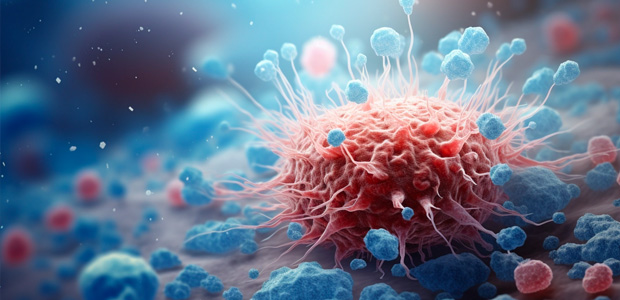
Evaluation and Management (E/M) Codes
E/M codes report visits and consultations with oncology patients. Code selection depends on the level of history obtained, physical exam performed, and medical decision making involved.
Common E/M codes include:
- 99201-99205 – New patient office or outpatient visit
- 99211-99215 – Established patient office or outpatient visit
- 99241-99245 – Office or other outpatient consultation
- 99354-99355 – Prolonged services with direct patient contact
These E/M codes are selected based on the documentation of key components, time spent with the patient, and medical necessity of the encounter. Modifiers like 25 and 57 may be appended to E/M codes in oncology billing.
Chemotherapy Administration Codes
Chemotherapy administration services are reported using the following CPT codes:
- 96409 – Chemotherapy administration, intravenous infusion technique
- 96411 – Chemotherapy administration, intravenous push technique
- 96413 – Chemotherapy administration, intravenous infusion technique requiring pump
- 96415 – Chemotherapy administration, intravenous infusion technique; each additional hour
- 96417 – Chemotherapy administration, each additional sequential infusion (different drug/substance)
These codes specifically describe chemotherapy administration and cannot be used for other IV infusions. Additional drugs, sequential infusions, and prolonged administrations are each reported separately.
Chemotherapy Drug Codes
The drugs used in chemotherapy are reported with J-codes in the HCPCS system.
Some common chemo drug codes include:
- J9000-J9999 – Chemotherapy drugs
- J0640 – Leucovorin calcium injection
- J0897 – Denosumab injection
- J9015 – Aldesleukin injection
- J9299 – Injection, trastuzumab, 10 mg (Herceptin)
The units reported with the J-code should match the dosage of the drug administered. Newer specialty drugs may require specific J-codes.
Therapeutic, Prophylactic, and Diagnostic Injections
Oncology often involves injections for therapeutic, prophylactic, or diagnostic purposes:
- 96372 – Therapeutic, prophylactic, or diagnostic injection (specify substance or drug); subcutaneous or intramuscular
- 96365 – Intravenous infusion, for therapy, prophylaxis, or diagnosis (specify substance or drug); initial, up to 1 hour
- 96366 – Intravenous infusion, for therapy, prophylaxis, or diagnosis (specify substance or drug); each additional hour
The drug injected is reported separately with its applicable code. Additional hours are coded individually.
Medical Oncology Services
Medical oncology CPT codes report services like treatment planning and care management:
- 96400 – Chemotherapy administration, complex, requiring prolonged physician contact
- 96401 – Chemotherapy administration, complex, requiring prolonged physician contact; each additional hour
- 96402 – Chemotherapy administration, each additional intravenous drug
- 96405 – Chemotherapy administration into a central vein
- 96406 – Chemotherapy administration into a completely implantable pump
- 96408 – Chemotherapy administration into a surgically implanted catheter
- 96416 – Chemotherapy administration, intravenous infusion technique; initiation of prolonged chemotherapy infusion (more than 8 hours)
- 96425 – Chemotherapy administration, intra-arterial; push
- 96440 – Chemotherapy intrathecal; without preservative
- 96446 – Chemotherapy intrathecal; with preservative
- 96521 – Refilling and maintenance of portable pump for chemotherapy
- 96522 – Refilling and maintenance of implantable pump for chemotherapy
- 96523 – Irrigation of venous access device for chemotherapy
Medical oncology services require close physician supervision and care management related to the chemotherapy regimen.
Lab and Pathology Services
Oncology patients require frequent lab testing services, reported with CPT codes like:
- 80048 – Basic metabolic panel
- 85014 – Hematocrit
- 85025 – Complete blood count, automated
- 85027 – Complete blood count, automated; additional populations
- 86335 – Inhibin A
- 86355 – Bence jones protein; urine
- 86356 – Bone marrow interpretation
- 88182 – Flow cytometry analysis
Pathology exam codes:
- 88304 – Surgical pathology exam
- 88305 – Surgical pathology examination, gross and microscopic
- 88312 – Special stains for microorganisms
- 88342 – Immunohistochemistry stain
- 88400-88499 – Cytopathology codes
Lab and pathology results guide cancer diagnosis, staging, and treatment.
Radiation Oncology Services
Radiation oncology services are reported with codes like:
- 77300 – Basic radiation dosimetry calculation
- 77261 – Therapeutic radiology treatment planning; simple
- 77262 – Therapeutic radiology treatment planning; intermediate
- 77263 – Therapeutic radiology treatment planning; complex
- 77280 – Therapeutic radiology simulation-aided field setting; simple
- 77295 – 3-dimensional radiotherapy plan
- 77332 – Stereotactic radiation treatment management
- 77334 – Stereotactic body radiation therapy
- 77427 – Radiation treatment management, 5 treatments
- 77431 – Stereotactic radiation treatment management
- 77432 – Stereotactic body radiation therapy management
These CPT codes report radiation planning, simulation, and physics services to deliver radiation therapy. Each treatment day is coded separately.
Nuclear Medicine Services
Nuclear medicine studies use radiopharmaceuticals to diagnose and stage cancer.
Common codes include:
- 78012 – Thyroid uptake
- 78015 – Thyroid imaging
- 78070 – Parathyroid nuclear imaging
- 78102 – Bone marrow imaging; limited
- 78104 – Bone marrow imaging; multiple
- 78800-78804 – PET scanning
PET scans are increasingly used to detect and stage many cancer types. Radiopharmaceuticals are reported with A-codes.
Evaluation and Procedures
Cancer often requires hands-on evaluations and procedures, using CPT codes like:
- 10021 – Fine needle aspiration biopsy, without imaging
- 19281 – Biopsy of breast; percutaneous, needle core, using imaging guidance
- 19083 – Biopsy of breast, incisional
- 19085 – Biopsy of breast, open; incisional
- 20550 – Injection of sinus tract
- 31625 – Bronchoscopy with biopsy
- 33206 – Percutaneous insertion of intracardiac catheter/electrode
- 33233 – Specimen collection, open, myocardial biopsy
- 47100 – Biopsy of liver, needle; percutaneous
- 49180 – Laparoscopy, surgical, hepatobiliary system
- 52000 – Cystourethroscopy
- 57155 – Insertion of uterine tandems and/or vaginal ovoids for radium treatment
- 58340 – Catheterization and introduction of saline or contrast through cervix
Accurate coding of biopsies, aspirations, scopes, and other procedures is required. Any image guidance is coded separately.
Pain Management Services
Pain management for cancer patients may require injections or procedures like:
- 27096 – Injection procedure for sacroiliac joint, anesthetic/steroid
- 62263 – Percutaneous lysis of epidural adhesions using solution injection
- 62287 – Aspiration or decompression of epidural space by catheter
- 63650 – Implantation of neurostimulator electrodes, epidural
- 64400 – Injection, anesthetic agent; paravertebral nerve
Neurolytic codes report injection or catheter placement to block pain signals:
- 64633 – Destruction by neurolytic agent, paravertebral facet joint nerve(s)
- 64635 – Destruction by neurolytic agent, paravertebral facet joint nerve(s); with image guidance
Moderate sedation provided for these procedures is reported separately.
Evaluation of Cancer Treatment Complications
Cancer treatment may lead to complications requiring additional services, using codes like:
- 96440 – Chemotherapy injection, intrathecal; without preservative
- 96542 – Refilling programmable pump for intrathecal infusion
- 99183 – Moderate sedation for chemo embolization of the hepatic artery
- 47562 – Laparoscopy, surgical; cholecystectomy with exploration of common duct
- 48547 – Complex fistula repair
- 49440 – Insertion of implantable defibrillator electrodes
- 55873 – Cryosurgery of prostate
These services manage adverse effects of chemotherapy, radiation therapy, surgery, or other treatments.
Reimbursement Tips for Oncology Coding
To maximize reimbursement and compliance in oncology billing:
- Use E/M codes to report medically necessary evaluations and follow-up care
- Append modifier 25 to E/M services on the same day as procedures
- Code chemotherapy administration fully with separate codes for IV push, prolonged infusions, and subsequent drugs
- Use specific J-codes for chemotherapy drugs with correct dosage units
- Code radiation therapy planning, physics, simulation, and management distinctly
- Report pathology, lab and nuclear medicine tests that are medically necessary
- Capture complexity for chemotherapy regimens requiring extra physician work
- Code biopsies, aspirations, and other procedures accurately based on documentation
- Use neurolysis and injection codes for pain management injections and infusions
- Code any services related to complications separately with proper specificity
- Ensure all codes are chosen according to ICD-10 guidelines and payer policies
- Include invoices and records to justify off-label drug use if needed
- Use chemo administration codes only for chemotherapy infusions, not other IVs
- Check radiation oncology code descriptors that specify technique and complexity
- Append modifiers for multiple lesions, organs, incisions or specimen types for pathology
- Report units accurately based on drug dosage or contrast volumes used
Following coding best practices facilitates proper reimbursement for medically necessary cancer care. Oncology billing and coding requires close attention to clinical details to select the most appropriate CPT and HCPCS codes.
Summary
Oncology billing involves numerous complex CPT codes to accurately report the services provided to cancer patients. Key codes include E/M services, chemotherapy administration, chemo drugs, therapeutic injections, medical oncology services, lab/pathology, radiation therapy, nuclear medicine, biopsies/procedures, pain management, and treatment complications.
Proper code selection depends on clinical details in the medical record. Following coding best practices, reporting units accurately, and documenting medical necessity facilitates appropriate reimbursement. Oncology billing requires close attention to CPT and HCPCS guidelines to choose the most specific codes based on treatment details.
